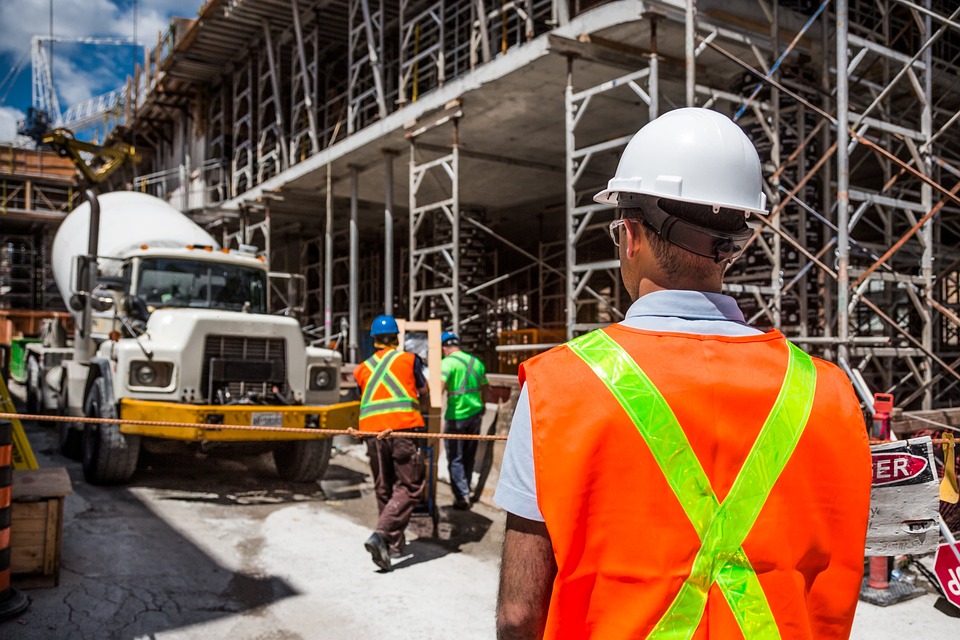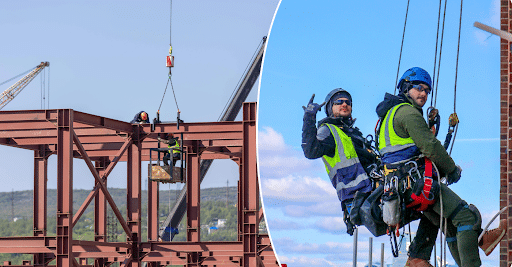The construction industry is constantly evolving, facing new challenges that demand innovative solutions. These challenges range from managing complex projects to ensuring safety standards and dealing with budget constraints.
Nowadays, to stay ahead, it’s crucial to adopt strategies that not only address these challenges but also enhance overall efficiency and quality. This article will explore six effective strategies that can significantly minimize the common challenges faced in construction.
These strategies are not only theoretical but are practical solutions, tested and proven in the field. By implementing these approaches, construction professionals can streamline their operations, improve safety, and ensure timely and cost-effective project completion.
Table of Contents
Upskilling Workforce
In the ever-changing landscape of the construction industry, the continuous learning and upskilling of the workforce are paramount.
One effective way to achieve this is through pursuing a construction management degree online. These online programs offer a convenient and flexible way for construction professionals to enhance their skills without disrupting their ongoing projects.
Online construction management degrees stand out due to their adaptability to the modern professional’s schedule.
Unlike traditional classroom settings, these programs allow learners to study at their own pace, fitting education into their busy work-life balance. This flexibility is invaluable in an industry where time is a precious commodity.
Moreover, construction management online degree programs frequently update their curriculum to reflect the latest industry trends and technologies. It ensures that learners are not only gaining academic knowledge but are also staying up-to-date with the current practices and innovations in the construction field.
After earning higher academic credentials, these upskilled professionals bring new perspectives, improved project management techniques, and enhanced problem-solving skills to the table, leading to more efficient and successful project outcomes.
Leveraging Technology for Enhanced Efficiency
In today’s world, technology plays a critical role in reshaping the construction industry. The integration of technological tools, such as project management software, artificial intelligence (AI), and virtual reality (VR), has opened new avenues for enhancing efficiency and precision in construction projects.
Project management software, for instance, allows for better planning, monitoring, and control of construction projects. It provides a centralized platform where all project-related information is accessible, helping in making informed decisions and keeping everyone on the same page.
AI and VR are also revolutionizing the construction industry. AI can predict project risks and suggest mitigation strategies, while VR can be used for immersive and detailed planning before the actual construction begins. These technologies help reduce errors, save time, and cut down costs significantly.
Effective Project Planning and Management
The cornerstone of any successful construction project is its planning and management. Effective project planning involves a thorough understanding of the project scope, timelines, resources, and potential risks. It requires a detailed and systematic approach to ensure that every aspect of the project is considered and accounted for.
One key aspect of effective project management in construction is to anticipate and mitigate risks, which involves regular monitoring and reviewing of the project progress against the set milestones and making adjustments as needed. It also includes effective communication among all stakeholders to ensure that everyone is aligned with the project goals and timelines.
Effective management also plays a vital role in avoiding delays and staying within budget. It requires a proactive approach to problem-solving, ensuring that issues are addressed promptly and efficiently.
By staying ahead of potential challenges and maintaining a clear focus on the project objectives, construction managers can lead their projects to successful completion on time and within budget.
Prioritizing Safety to Reduce Workplace Hazards
Safety in the construction industry cannot be overstated. It is a critical aspect that goes beyond compliance with regulations – it’s about safeguarding the well-being of every individual on the worksite.
Prioritizing safety involves a commitment to creating and maintaining a safe work environment, which can significantly reduce workplace hazards and prevent accidents.
A robust safety protocol begins with comprehensive training for all workers. This training should cover the proper use of equipment, awareness of potential hazards, and emergency procedures. Regular safety drills and meetings can also reinforce the importance of safety and keep it at the forefront of everyone’s mind.
Investing in high-quality safety equipment is equally important. From protective gear like helmets and gloves to advanced machinery with safety features, the right equipment can be a deciding factor in preventing injuries.
Another key element is the establishment of a safety culture within the company. It means encouraging workers to speak up about safety concerns and ensuring that these concerns are addressed promptly.
By fostering an environment where safety is everyone’s responsibility, companies can significantly reduce the risk of accidents and injuries on the construction site.
Building Strong Supplier Relationships
In construction, timely delivery of materials is crucial to keeping projects on track. Building strong relationships with suppliers can ensure a steady supply of materials, reducing the risk of delays and helping to manage costs more effectively.
However, to develop strong supplier relationships, clear and consistent communication is vital. It includes sharing project timelines, being transparent about needs and expectations, and providing feedback. By keeping suppliers in the loop, they can better anticipate and meet the project’s demands.
Negotiating fair and mutually beneficial contracts is also important. These contracts should reflect a balance between cost-effectiveness for the construction project and a fair profit margin for the supplier. When suppliers feel valued and fairly compensated, they are more likely to go the extra mile to meet the project’s needs.
Regularly evaluating and providing feedback to suppliers can help maintain high standards. This feedback loop allows for continuous improvement and adaptation to changing project needs.
Sustainable Practices and Green Building
Sustainability in construction is more than a trend; it’s a necessary shift towards more responsible building practices. Sustainable construction involves using environmentally friendly materials, reducing waste, and maximizing energy efficiency.
Green building practices not only benefit the environment but can also lead to long-term cost savings. For example, using energy-efficient materials and systems can reduce utility costs over time. Additionally, sustainable buildings often have a higher market value and appeal more to environmentally conscious buyers or tenants.
Implementing sustainable practices requires planning and investment, which might involve researching alternative materials, adapting designs for energy efficiency, or investing in renewable energy sources like solar panels. While this might increase upfront costs, the long-term benefits for the environment and cost savings can be substantial.
Furthermore, sustainable construction practices can improve the health and well-being of occupants. For instance, using non-toxic materials and maximizing natural light can create a healthier indoor environment.
Conclusion
In conclusion, effectively minimizing construction challenges requires a multifaceted approach. From upskilling the workforce with construction management degrees to leveraging technology and prioritizing safety, each strategy plays a crucial role in enhancing the efficiency and success of construction projects.
Building strong supplier relationships and adopting sustainable practices further ensure long-term success and resilience in the construction industry. Implementing these strategies can lead to safer, more efficient, and environmentally responsible construction projects.





